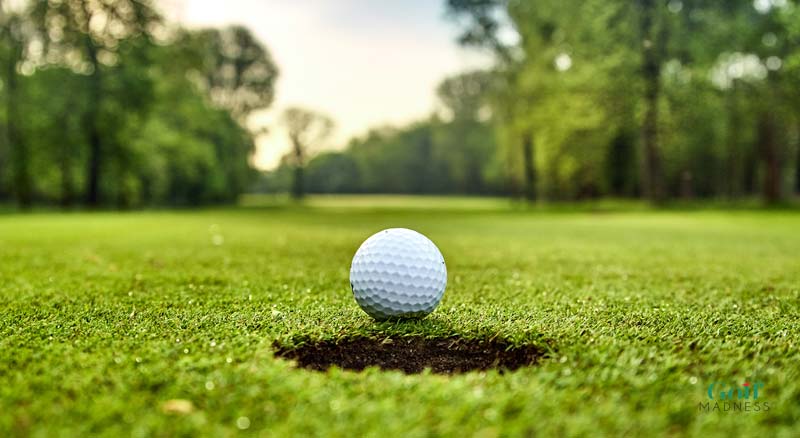
How Do I Choose A Golf Ball Based on Swing Speed?
Choosing the right golf ball based on the golf swing speed can make all the difference in the distance, accuracy, and control over the shot. Now, what needs to be different in golf balls based on swing speeds? Golf balls' compression is the most crucial thing to change for better performance with your swing speed.
But it isn't the only thing. You must understand the golf ball and your game first and then choose one. Let's find the right ball for your swing speed in 4 simple steps.
4 Simple Steps to Choose a Golf Ball Based on Swing Speed
1. What golf ball factors to consider depending on swing speeds?
First, try to understand the golf ball parts and how each of them have an impact on the performance. It will help you to choose the right golf ball easily. Here are the factors that affect the golf balls' performance the most. Remember that one factor solely doesn't measure the golf balls' performance. All the parts together determine that.
Compression
Golf balls' compression has the closest relation to the swing speed. When swing speed changes, compression is the first thing to change. So, what compression golf ball should you use based on swing speed? The best way is to choose a number near your driver's swing speed in mph. For example, if your driver swing speed is 80 mph, keep the compression rating number around 80.
Choosing a bit lower compression than your swing speed helps increase the distance, launch higher, and hit straighter shots. It's because lower compression balls typically have a lower spin that makes the ball perform that way. As a result, low-compression ones are the best golf balls for slow swing speeds. But don't go too low. For example, if you hit a 40-compression ball with an 80 mph swing speed, that might eventually make you lose distance. It's because the ball won't fly as fast or won't roll as much.
Construction
For golfers with higher swing speeds, more layers provides better control. That's why 3-piece or more is recommended for them. While for slow swingers, 2-piece and 3-piece balls are suggested to perform better.
Cover
Urethane-covered balls spin comparatively more than ionomer or surlyn-covered golf balls. That leads to ionomer or surlyn cover suitable for comparatively slower swing speed to hit longer, straighter, and higher. In comparison, the urethane cover is for those who want added accuracy and control over the shot.
Other factors: Dimple, weight, size, etc.
Factors like weight, size, dimple pattern, golf course temperature, etc. matter too. Of course, you need to know how much do golf balls weigh or what is the standard size to not break USGA rules. Even better if it assists in performing well without breaking the rules.
For example, a heavier golf ball tends to go farther than a lighter one, as it is easier for heavier balls to cut through the air. That makes a slightly heavier ball that doesn't break the rules, a better choice for slow swing speeds to gain distance. While specially designed dimple patterns can enhance performance for different swing speeds. And in hot weather, a 60-compression ball performs more like a 50-compression one.

2. Know about different ball categories
Chances are that you already know it. Since it's an important factor, let's go through it again. Distance golf balls, low-spinning golf balls, golf balls for beginners or high handicappers etc. are mostly 2-piece balls with lower compression and ionomer cover. They mostly come at a lower price and work best for slow swinging golfers.
On the other thand, the premium or tour-level balls are usually multi-layered, urethane covered balls with higher compression. They are comparatively expensive and work best for fast swinging golfers.
Reasons why brands and most experts label like this is, beginners and high handicappers tend to have comparatively slower swing speed. In comparison, low handicappers are assumed to be fast swingers.
But there could be exceptions as well. Beginners might have a higher swing speed too. So, rather than just believing the "beginner or high handicapper" label, try to match the specifications with your preferences.
3. Set your priority and choose
One thing becomes apparent when you get to know golf balls. That is, you can't get the best greenside spin and distance at the same time. Although you get a lot better than before because of modern technology, it still doesn't get the best of both.
If distance is your priority and you have a slower swing speed, choose the low-compression balls. If the shot-shaping is your priority, get the ball with comparatively high overall compression. But then again, it's always recommended to maintain the balance of both by choosing the compression rating near your driver swing speed.
4. Experiment and track your performance
There is a vast range of options on the golf ball market. With each brand, a golf ball with the similar specifications might perform a bit differently. You never know exactly which one will click with your preferences. All the factors are just to give you an idea of what is more likely to be the best one for you. So, the suggestion is to get yourself different ones and experiment. This helps to understand how differently golf balls perform and how you can use that to your advantage.
Conclusion
Finding the right golf ball based on swing speed might seem like a very small change. But in golf, every small detail eventually leads to a better score. So, keep striving for improvement, stay dedicated to the practice, and most importantly enjoy playing golf.


